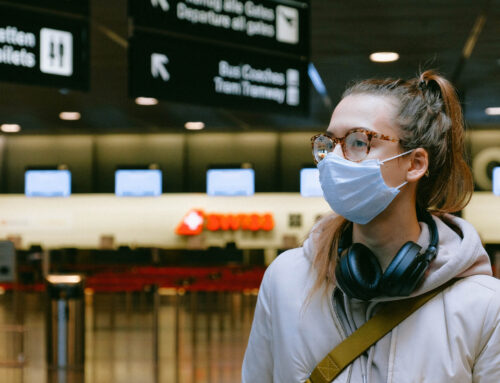The Netherlands goal is to welcome international students from across the globe to receive top-quality higher education. In this pandemic-world, they have also taken the necessary measures for the wellbeing of all students.
The Dutch approach aims to keep the COVID-19 virus under control, which they have successfully done. Now, it is important that the virus stays under control until a vaccine or treatment is available.
Current measures for international students in the Netherlands
1. Campuses reopening and blended learning
Dutch higher education institutions are proud of what they have achieved to date in their shift towards online education. They do so to offer the high quality that defines our higher education. Currently, Dutch higher education institutions are considering several scenarios for teaching on-campus and blended learning. Some institutions have already decided on their mode of instruction for the start of the 2020-2021 academic year. These decisions may vary, so we advise you to contact your host institution.
2. Language Testing
All Dutch higher education institutions are now accepting online English language tests required for admission and visa purposes. Please contact your Dutch higher education institution for more information about your enrolment.
3. Dutch residence permit
Dutch higher education institutions are a recognised sponsor and apply for your residence permit on your behalf. Are you facing delay due to the coronavirus crisis? Ask your host institution if your residence permit could be extended. Handling new students’ residence permits has priority.
4. Travel restrictions and consular services
The situation is changing so fast worldwide that information quickly becomes outdated. The Dutch Ministry of Foreign Affairs advises using its website www.netherlandsandyou.nl as a starting point. There are exceptional categories that are exempt from the travel ban: students with an entry visa (MVV) or with a valid study residence permit who are willing (and able) to return. Make sure that you monitor the website of the embassy or consulate of your country of origin regularly once you are in the Netherlands. In the current situation, countries like to know where their citizens are so they can provide assistance where required.
5. Tuition fees
Are you a student who will obtain a master’s degree at a research university or a bachelor’s degree at a university of applied sciences between September 2020 and January 2021? If so, you will receive a one-off compensation in the first quarter of 2021. The maximum amount is 3-months of tuition fees (€535). You will receive the amount no later than 31 March 2021. Some Dutch higher education institutions are subsidising the lower tuition fee rate. This reduction is available for the period when you are facing a study delay due to the coronavirus. Check this option with your host institution beforehand.
6. Health care and health insurance
International students who are currently studying in the Netherlands have access to health care. Before departing from your home country, always make sure that you check your specific insurance situation. You must also have enough coverage during your stay in the Netherlands. Everyone in the Netherlands who has symptoms of COVID-19 can be tested.
7. Accommodation
There is no financial compensation for students who are having problems paying their rent due to the coronavirus crisis. However, landlords must try to look for solutions. For information about your rights and duties, contact the Housing Hotline of the Dutch Student Union for advice.




